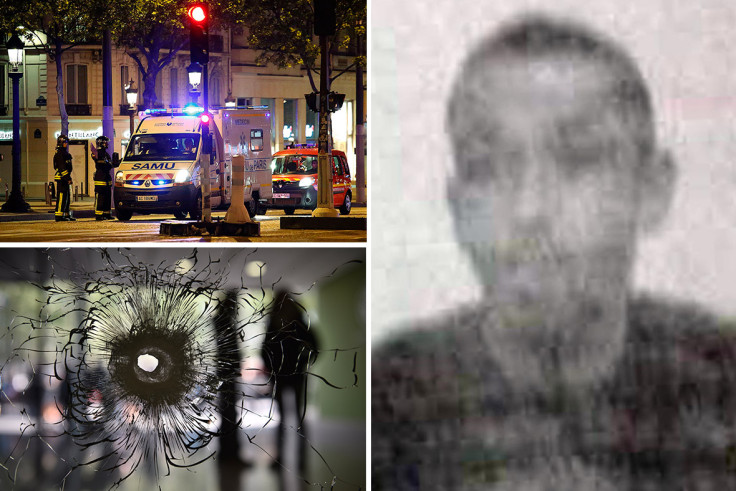Karim Cheurfi: What we know about the Champs-Elysées attacker
Isis has claimed the Paris terror attack and said it was carried out by "Abu Yusuf al-Baljiki".
French authorities have confirmed that the man behind the Champs-Elysées terror attack in Paris is 39-year-old French national Karim Cheurfi. The Paris prosecutor Francois Molins confirmed the attacker's identity in a press conference.
Isis released a statement claiming responsibility and said the attacker's nom de guerre with the Islamist terror group was Abu Yusuf al-Baljiki. The latter part of the name translates as Belgian, suggesting he may have some connection to the country, though this is unconfirmed.
During the attack on 20 April, at around 9pm in Paris Cheurfi drove along the Champs-Elysées and pulled up near to the Arc de Triomphe before leaving the vehicle armed with a Kalashnikov, an assault rifle.
He started shooting and killed one police officer and seriously injured two others. A female tourist was also wounded. Cheurfi was shot dead by police as he tried to flee the scene. Investigators found a pump-action shotgun and knives in his car. A Koran was also found, and next to his body a handwritten letter defending Isis.
Cheurfi lived at an address in Chelles, to the east of Paris, which was searched by French investigators. Three members of his family were detained for questioning.
He was well-known to police. A report from April 2001 in the Le Parisien newspaper says Cheurfi was a violent car thief who, while in custody, grabbed a police officer's gun and shot him three times – in the lung, leg and foot – before he was tackled by other officers.
He was in custody after being arrested for shooting at police officers in a car chase several days before. Three officers were wounded in the second incident and Cheurfi was sentenced to 20 years in prison for attempted manslaughter, though this was reduced on appeal in 2005 to 15 years. He was released from prison early in 2015.
In February 2017, police were investigating him after he made threats to kill officers. His house was searched and evidence that he had become a radical Islamist was reportedly discovered.
He was arrested but later freed because there was not enough evidence he was a threat, said the Paris prosecutor.
According to reports by BFM TV, he had written of wanting to kill police on Telegram, an encrypted messaging app popular with Isis supporters.

© Copyright IBTimes 2025. All rights reserved.






















